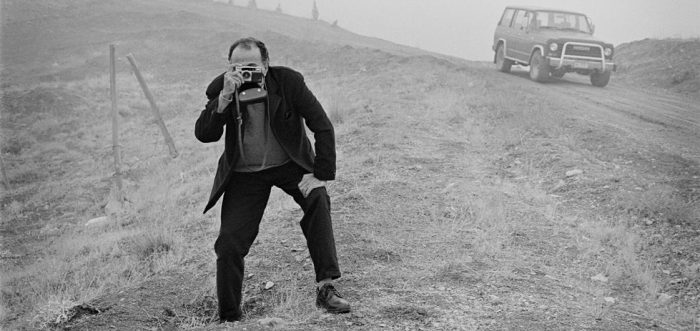It’s difficult to find a way to articulate what Abbas Kiarostami did as a filmmaker or who he was as an artist. He challenged and transformed what film can and should be, and worked up a fairly lengthy catalogue of masterpieces in the process.
From the dialogue and form of Ten, the detached, surrealistic reflections on existence in Taste of Cherry and The Wind Will Carry Us, to the intricate manipulation of perception and truth in the opus that is Close-Up. His lesser lauded works have as much to offer, in particular his trilogy of films set in the northern Iranian village of Koker, which both draw beautiful insights from a slow-paced life whilst also capturing a village reacting to and recovering from an earthquake over seven years.1
Kiarostami reconciled his various art forms and practices with one another and placed a constant focus on the importance of the audience, emphasising the validity of their own perceptions of his work.
I arrived in Iran a day before Kiarostami left to go to Paris for treatment. On my full last day in the country I was in Isfahan and ended up speaking to a man who ran a small museum – his name was Mehrdad – about how different filmmakers were perceived within his country. Kiarostami’s name sat alone, in its own tier, as something he expressed as meaning so much more than the sum of his films. I remember the look on Mehrdad’s face when he spoke about all of this, as he explained how so many people were hoping for Kiarostami’s recovery.
It’s heart-breaking to read that Kiarostami has passed away but there’s something bittersweet and grounding in reflecting on his films and their legacy; in the beauty, insight, passion and optimism within them. It’s kind of impossible to describe what Kiarostami achieved as a filmmaker and an artist; thankfully his work speaks for itself – and there’s a lot of it.
An inspiration in so many ways and a complete giant of cinema.
r.i.p.
